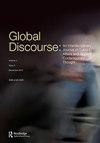Complexities of biomedicine, theology and politics in Islamic bioethical deliberation over female genital procedures: a reply to ‘The prosecution of Dawoodi Bohra women’ by Richard Shweder
IF 1.4
Q2 INTERNATIONAL RELATIONS
引用次数: 0
Abstract
Professor Richard Shweder’s target article, ‘The prosecution of Dawoodi Bohra women: some reasonable doubts’, lays bare the ways in which political motivations influence moral, ethical and legal deliberations over female genital cutting/circumcision in society. He argues that activist stakeholders deploy a provocative lexicon and biased clinical data in order to silence dissenting views about, and legally restrict the practice of, female genital cutting/ circumcision. He suggests that a more balanced approach to discourse and more nuanced data analysis would open up avenues for tolerating religiously motivated female genital procedures carried out among Dawoodi Bohra communities residing in liberal democracies. Building upon his sociocultural analysis, this reply will explore the confluence of biomedical, theological and political considerations influencing contemporary Islamic bioethical discussion over the practice. I use my participation in the 2017–19 Fiqh Council of North America’s deliberations over female genital cutting to explore how (1) biomedical understandings and health outcomes data, (2) theological concerns over scriptural evidence and juridical best practices, and (3) political and social considerations influenced religious evaluation of the practice. I contend that Islamic juridical academies pursuing bioethical deliberation are not (and should not consider themselves to be) engaging in the routine application of scriptural reasoning in order to furnish guidance to a Muslim polity; rather, bioethics questions are necessarily layered with social and political considerations that require focused examination. This added dimensionality underscores the need for Islamic bioethics deliberation to move beyond the dyad of clinicians and jurists, and to include social scientists, public policy experts and other relevant scholars in order to properly conceive of and address the ethical problem space. Moreover, in the case of female genital cutting/circumcision, the bioethics veers towards biopolitics, making multidisciplinary deliberation all the more important in both religious and secular spaces.Key messagesFemale genital cutting/circumcision is a practice that has biomedical, social and religious dimensions.Moral, ethical, legal and political deliberation over female genital cutting/circumcision should account for the contentions and ambiguities over each of these dimensions of female genital cutting/circumcision.Islamic bioethical deliberation is more than just scriptural hermeneutics and searching for legal precedent; rather, it involves characterising the problem space along its biomedical, theological, social and political dimensions.Multidisciplinary approaches must therefore be used to accurately describe and address the ethical problem space that female genital cutting/circumcision occupies in both religious and secular contexts.生物医学,神学和政治的复杂性在伊斯兰生物伦理审议的女性生殖程序:回复理查德·施韦德的“起诉达乌迪·博赫拉妇女”
Richard Shweder教授的目标文章,“对Dawoodi Bohra妇女的起诉:一些合理的怀疑”,揭示了政治动机如何影响社会中对女性生殖器切割/割礼的道德,伦理和法律审议。他认为,激进的利益相关者利用煽动性的词汇和有偏见的临床数据,以压制对女性生殖器切割/割礼的不同意见,并在法律上限制这种做法。他建议,一种更平衡的话语方式和更细致的数据分析,将为容忍居住在自由民主国家的Dawoodi Bohra社区中出于宗教动机的女性生殖器手术开辟道路。以他的社会文化分析为基础,本文将探讨影响当代伊斯兰生物伦理讨论的生物医学、神学和政治因素的汇合。我利用我参与的2017-19年北美Fiqh理事会关于女性生殖器切割的审议来探索(1)生物医学理解和健康结果数据,(2)对圣经证据和司法最佳实践的神学关注,以及(3)政治和社会考虑如何影响对实践的宗教评估。我认为,追求生物伦理思考的伊斯兰司法学院并没有(也不应该认为自己是)为了给穆斯林政体提供指导而从事圣经推理的常规应用;相反,生物伦理学问题必然包含社会和政治方面的考虑,需要重点研究。这一增加的维度强调了伊斯兰生物伦理审议需要超越临床医生和法学家的二元对立,而包括社会科学家、公共政策专家和其他相关学者,以便正确地设想和解决伦理问题空间。此外,在女性生殖器切割/割礼的情况下,生命伦理学转向了生命政治,使得多学科的审议在宗教和世俗空间中都更加重要。女性生殖器切割/包皮环切是一种具有生物医学、社会和宗教层面的做法。关于女性生殖器切割/包皮环切的道德、伦理、法律和政治审议应该考虑到女性生殖器切割/包皮环切的每个这些方面的争论和含糊不清。伊斯兰的生命伦理审议不仅仅是圣经解释学和寻找法律先例;相反,它涉及到沿着生物医学、神学、社会和政治维度描述问题空间。因此,必须使用多学科方法来准确描述和解决女性生殖器切割/割礼在宗教和世俗背景下所占据的伦理问题空间。
本文章由计算机程序翻译,如有差异,请以英文原文为准。
求助全文
约1分钟内获得全文
求助全文
来源期刊

Global Discourse
Social Sciences-Political Science and International Relations
CiteScore
4.10
自引率
6.70%
发文量
64
期刊介绍:
Global Discourse is an interdisciplinary, problem-oriented journal of applied contemporary thought operating at the intersection of politics, international relations, sociology and social policy. The journal’s scope is broad, encouraging interrogation of current affairs with regard to core questions of distributive justice, wellbeing, cultural diversity, autonomy, sovereignty, security and recognition. All issues are themed and aimed at addressing pressing issues as they emerge.
 求助内容:
求助内容: 应助结果提醒方式:
应助结果提醒方式:


